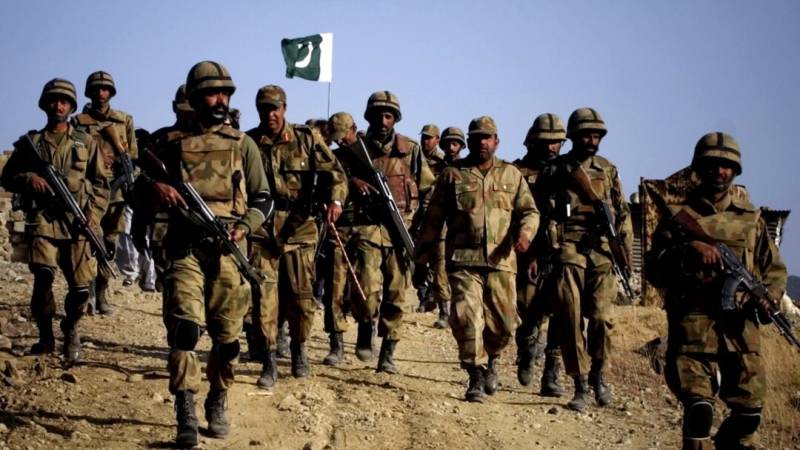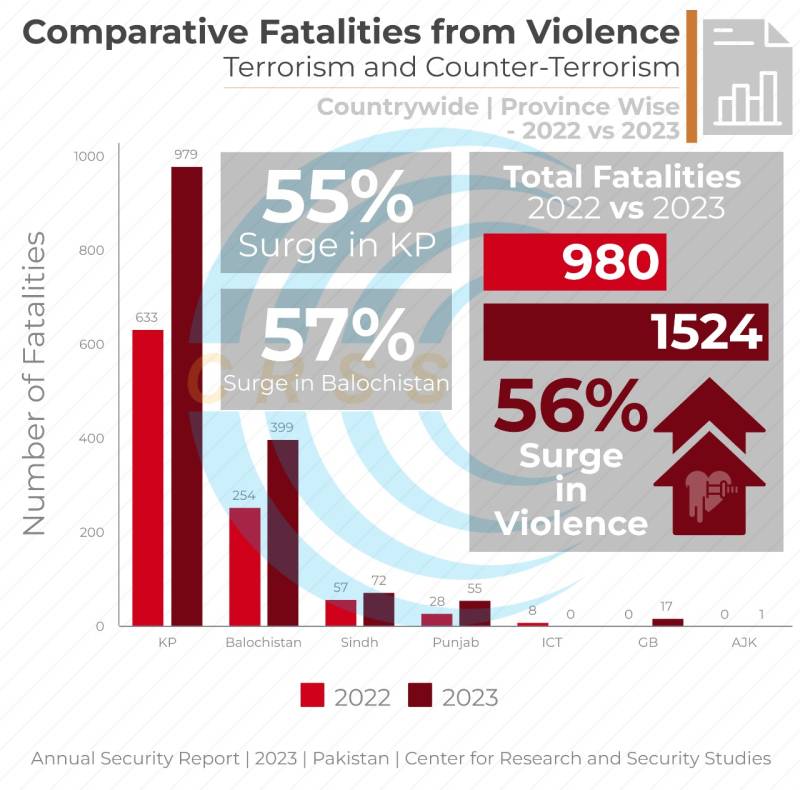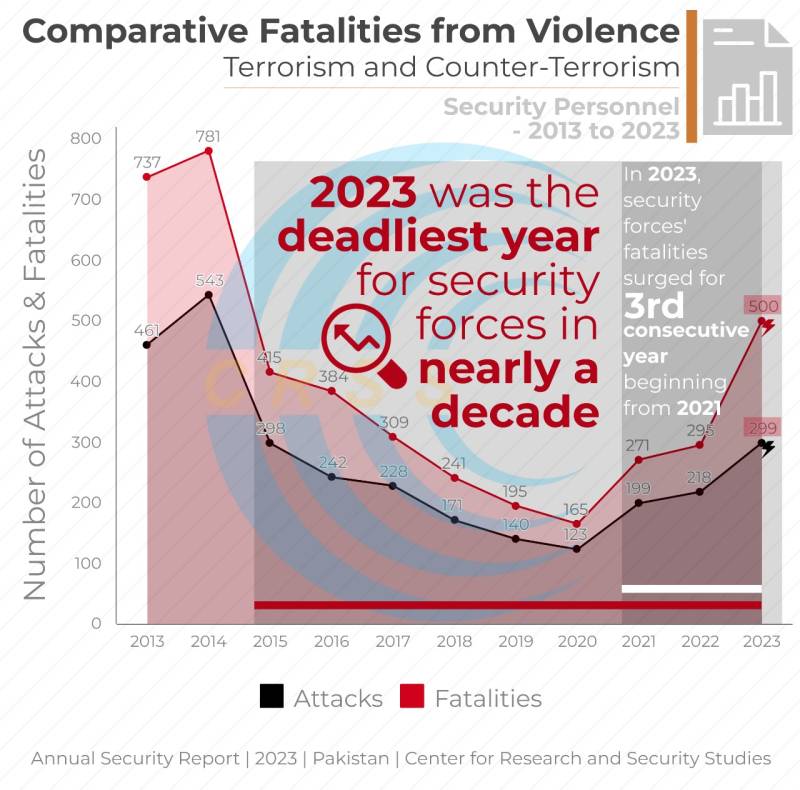
Pakistan saw a 56% surge in violence, recording 1,524 fatalities nationwide in 789 attacks through 2023, compared to 980 fatalities in 2022, according to Islamabad based thinktank Center for Research and Security Studies' Annual Security Report for 2023.

There was a 55% surge in fatalities from violence in KP, and a 57% surge in Balochistan. "KP and Balochistan provinces were the primary centers of violence, accounting for over 90% of all fatalities and 84% of attacks (including incidents of terrorism and security forces operations) recorded during this period. Punjab and Sindh were relatively peaceful as together, both these provinces suffered only 8% of all fatalities in 2023."
In the light of these statistics, 2023 was the deadliest year for security forces in nearly a decade, as security forces fatalities surged for the third consecutive year since 2021, totaling 500 in 2023.

According to the report, the country suffered as many as 586 terror attacks this year, with only 17% of them claimed by the banned terror outfits such as Tehreek-e-Taliban Pakistan (TTP), Balochistan Liberation Army (BLA), Daish (Islamic State Khorasan) and others. The security forces conducted as many as 197 operations against outlaws leaving 537-545 of them dead.
The report details how throughout the year, Baloch insurgents and jihadi militants exhibited heightened activity, with a total of 101 terror attacks claimed by them this year. Baloch insurgents claimed responsibility for 32 attacks, showcasing BLA as the most prolific insurgent outfit with 24 executed attacks.
The remaining attacks were attributed to other groups such as the Baloch Liberation Front (BLF) and Balochistan Liberation Tigers (BLT). The Sindhudesh Revolutionary Army (SRA) also claimed responsibility for three attacks.
The Tehreek-e-Taliban Pakistan (TTP) claimed responsibility for 49 attacks, and two more attacks as its joint venture with Lashkar-e-Islami (LI), setting a new trend in its operation.
The recently emerged militant group Tehreek-e-Jihad Pakistan (TJP) ranked second, claiming responsibility for six attacks as its own crime while two more attacks it claimed along with Daish and BLA. The Islamic State (Daish) also asserted involvement in five attacks, while Ansar al-Jihad (AaJ), another recently emerged militant outfit, claimed responsibility for one attack (Table 05).
One of the major causes of escalation of fatalities of civilians and security personnel was the use of the most lethal form of attacks by the militants and the insurgents – suicide bombers. There were 853 casualties from 31 suicide attacks (287 lost their lives while 566 were wounded).
Security officials were the highest victims of suicide attacks, bearing the brunt of 19 attacks and suffering 150 fatalities and 310 injuries, while the civilians were targets of 10 attacks, suffering 135 fatalities and 256 injuries.
Of the 31 suicide attacks, 25 were reported from KP and 6 from Balochistan. Tehreek-e-Taliban Pakistan (TTP) and its splinter groups claimed responsibility for 8 suicide attacks, while a newly formed militant outfit, Tehreek-e-Jihad Pakistan (TJP) claimed for 2 suicide attacks. Daish (Islamic State) also claimed one attack and another one was claimed jointly by TTP and Daish in Balochistan.
The Baloch Liberation Army (BLA) also claimed a suicide attack that was carried out by a female. This was the second incident of a suicide attack by a female activist of BLA, the first occurred last year at Karachi University targeting Chinese educationists.
The suicide attacks surged from three incidents in 2020 to 6 in 2021, with the upward trend continuing since then, reaching up to 31 suicide attacks this year, marking four times escalation.
An alarming upsurge in sectarian violence was recorded this year. In 2023, acts of terrorism directed at religious communities and their places of worship resulted in the tragic loss of 203 lives, 88 of them were security officials.
Among the affected, Sunni Muslims had the highest number of fatalities, followed by Shia and Shia Hazara communities. Persons from diverse religious backgrounds like Christian, Hindu, Sikh, and Ismaili communities, also fell victim to violence, targeted solely due to their religious identities

